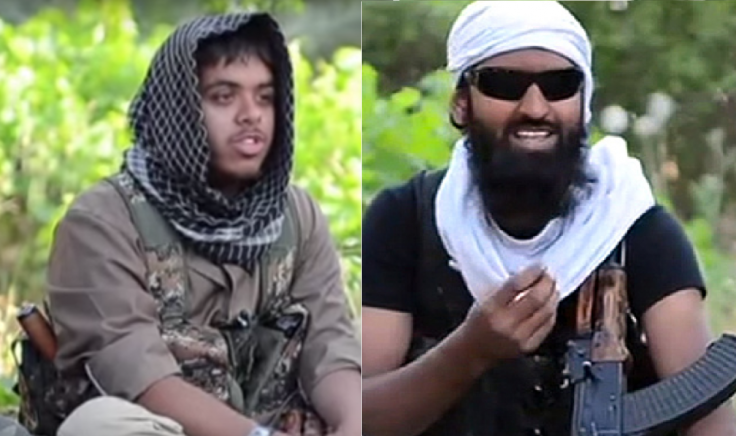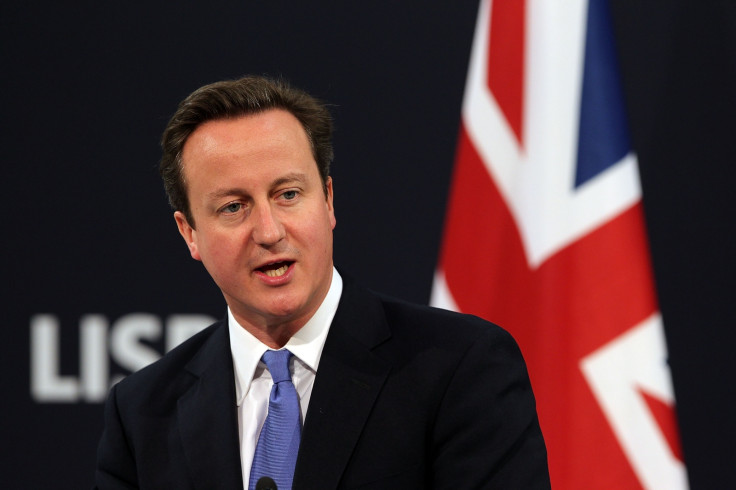Reyaad Khan: Was the RAF drone strike on Cardiff-born Islamic State target legal?

You will find few tears shed for the British citizens who became Islamic State (Isis) militants and were subsequently pulverised by a missile launched from an RAF drone over Syria. But the secret mission, authorised by the prime minister, is already being denounced as a summary execution by human rights groups. So what does the law say?
Reyaad Khan, 21, from Cardiff, and Ruhul Amin, 26, from Aberdeen were two British jihadis killed by a Predator missile on 21 August in Raqqa, Syria. It was a unilateral RAF mission to take out Khan, who was allegedly plotting terror atrocities on British soil. Amin was travelling in the same car as Khan when it was hit. A third British national, Junaid Hussain, 21 and from Birmingham, was killed in a US air strike days later. Hussain was also accused of plotting terror attacks in the West, including Britain.
When announcing the strike to the House of Commons, David Cameron said the targets were planning "specific and barbaric attacks against the West, including directing a number of planned terrorist attacks right here in Britain, such as plots to attack high-profile public commemorations, including those taking place this summer".
"We should be under no illusion; their intention was the murder of British citizens, so on this occasion we ourselves took action," Cameron said, adding no civilians were killed in the air strike.
"We took this action because there was no alternative. In this area, there is no government we can work with; we have no military on the ground to detain those preparing plots; and there was nothing to suggest that Reyaad Khan would ever leave Syria or desist from his desire to murder us at home, so we had no way of preventing his planned attacks on our country without taking direct action."
The prime minister consulted the attorney general, who advised that the air strike was lawful under Article 51 of the United Nations charter. It is this article that gives sovereign states the right to self-defence.

"Nothing in the present charter shall impair the inherent right of individual or collective self-defence if an armed attack occurs against a member of the United Nations, until the Security Council has taken measures necessary to maintain international peace and security," says Article 51.
"Measures taken by members in the exercise of this right of self-defence shall be immediately reported to the Security Council and shall not in any way affect the authority and responsibility of the Security Council under the present charter to take at any time such action as it deems necessary in order to maintain or restore international peace and security."
Details on what exactly was being planned by Khan are unclear, though there is some suggestion the VJ Day celebrations were a target – and the Queen in particular. Moreover, Cameron has not published the legal advice he was given. Nor, his office said, will he. So people are inevitably asking questions about the asserted lawfulness of the strike.
There is room for interpretation of Article 51. It specifically states there must be an "armed attack" against a UN member state. Khan and the others were plotting, so this was a pre-emptive strike. Does the law allow for pre-emptive strikes? Yes, argues Carl Gardner, a barrister and former government lawyer. He writes on his Head Of Legal website:
Finally, it may have occurred to you that none of Khan's plans seem to have been implemented — so where's the 'armed attack'? A fair point, but customary international law has long recognised that pre-emptive self-defence can be lawful under the 'Caroline' principles, where the...
necessity of self-defense was instant, overwhelming, leaving no choice of means, and no moment of deliberation
...words which again allow room for quibbles, if applied in a literal way. Was there an instant, overwhelming need to kill Khan at that moment? Could his plans not be averted by police action in the UK? Surely there was a moment of deliberation if the attorney general could advise? I think these would be pretty weak attempts at hair-splitting.
If there was intelligence that Khan was involved in substantial 'IS' terror plots, then it's reasonable to see stopping him (rather than just stopping his plans individually, 'downstream') as an overwhelming necessity. No other means of stopping him is available to Britain in lawless Syria. And once he was located, the necessity to act became instant, since another chance to stop him might not come.
There is also the question about whether such attacks on non-state actors can be legal when the charter accounts for states. But the interpretation of international law has adapted in the post-9/11 era with the US-led War on Terror. While some experts query this shift, and argue much of the use of drones by the US is unlawful, others say this is the natural adaptation of the law to meet contemporary security challenges, such as al-Qaeda and IS.
Otherwise governments would be shackled by a literalist reading of the law and so unable to defend themselves by attacking terror groups operating out of unstable countries, such as by pre-emptively striking them.
As a 2003 paper by the International Law and the Preemptive Use of Military Force by the Georgetown University expert Anthony Clark Arend put it:
Is this more permissive approach to preemption acceptable under current international law? The answer to this question depends on how one understands the contours of contemporary international law. Under the United Nations Charter paradigm for the use of force, unilateral pre-emptive force without an imminent threat is clearly unlawful. But if the charter framework no longer accurately reflects existing international law, then the Bush doctrine of pre-emption may, in fact, be lawful — even if it is politically unwise.
So as long as there was credible intelligence showing an imminent threat to Britain; that there was no other reasonable way in which the threat could have been neutralised; and the action taken was proportionate; the drone strike in which British citizens were killed would be lawful and justified.
It is easy to accept that there was no other way to handle Khan. Risking special forces' lives to pluck him out would be hard to justify, and the British could not work with the Assad regime for obvious reasons. The action could also be deemed proportionate because no civilians were killed.
But a question mark hangs over the nature of the threat posed by Khan and his accomplices. Without more information, it is difficult to assess how imminent the threat was. This makes it possible that the government will be subject to legal action over the strike, perhaps by human rights groups concerned that the UK is beginning down the path set by the US, which routinely assassinates its targets with drone strikes, often by entering the airspace of sovereign states without permission.
Was Khan planning or directing an attack? The latter implies imminence of a threat, the former not – an important distinction in the lawful use of a pre-emptive strike.
"It's extremely alarming that the UK has apparently been conducting summary executions from the air," said Kate Allen, Amnesty International UK director. "In following the United States down a lawless road of remote-controlled summary killings from the sky, the RAF has crossed a line."
Cameron will be writing to the UN Security Council about the strike to make it clear that it fell within the law. But there are reports that the UK defence secretary, Michael Fallon, has a "kill list" of terrorists operating in the Middle East which could be lawfully hit by air strikes because of the threat they pose to Britain.
Fallon did not deny in a BBC Radio 4 interview that such a list exists. But he said the government "wouldn't hesitate to do it again". With more of such air strikes expected to be carried out by the RAF, questions of legality will hang over them unless the government is more open about the nature and quality of the intelligence underpinning them.
© Copyright IBTimes 2024. All rights reserved.






